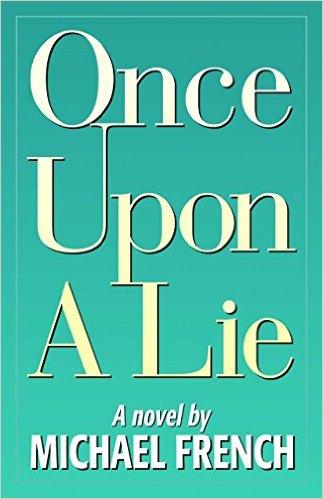Book Review: Once Upon a Lie
Book Reviewed by Carol Taylor
Once Upon a Lie is timely and timeless story of an unlikely friendship, doomed love, and tragedy, that asks the questions: Can we escape our circumstances and rewrite our destiny? Are we really the master of our fate? Or are we doomed to history, society, and ideology? Apt questions for the socio-political climate we find ourselves in today. It is a classic tale with a contemporary racial and socio-economic twist.
The story is told in different points of views in different chapters, one from Alexandra (Alex for short) and one from Jaleel. Starting in the present then going back to the past, French tells the alternating stories of Alex, a white girl from a well-off family and Jaleel, a black teen, from a poor family.
When we first meet Jaleel in 1982 heis a bright and focused twelve-year-old with lots of promise. His mother Amelia dotes on him while his father, Clarence, an internal and withdrawn man is more distant. On his mother’s birthday, Clarence returns home after losing the job he’s had for almost two decades because he got into a fight with a white man. Frustrated Amelia relentlessly berates him about how difficult it will be for him to get another job and how this will affect the family. Jaleel arrives from school during the argument and watches from the doorway. Without warning, Clarence, a reserved tightly wound man, whose emotions are seething below the surface, removes a gun from his waistband and kills Amelia. He then points the gun at Jaleel and tells him to run. Then as his son watches, Clarence puts the gun to his head and kills himself. Jaleel calls the police, but then becomes the prime suspect in his father’s death. Sadly, this is not too surprising, when you consider he lives in a somewhat racially segregated small city in central Texas, in the middle of a largely white county. Jaleel goes on the run and with the aid of Good Samaritans, starts a new life for himself in California. Five years later he is seventeen and squatting in a foreclosed home, he meets fifteen-year-old Alex, a privileged white girl who, on a dare from her brother Toby, crosses Cahuenga Blvd, from their wealthy Toluca Lake enclave into a far less affluent section of North Hollywood. Alex is also on the run, though more emotionally, than physically. She is trying to escape from not only her parents’ expectations but also from her mother’s duplicity.
Out of her element, Alex wanders wide-eyed past dilapidated houses with warped roofs and peeling paint, until she sees Jaleel who is selling lemonade.
“About five houses down one street, a young black man caught my eye. He was standing in a yard of uncut grass and dandelions, wearing jeans and a yellow T-shirt with Bob Marley’s face on it, along with a Dodgers cap on top of a bushy Afro. Suddenly he was staring back at me… History might have turned out differently if I’d kept going straight ahead. Instead, like a true explorer, I moved toward the stranger with little thought of caution.”
Alex and Jaleel have an instant connection that is founded on a shared loneliness. Jaleel’s is intentional since he is on the run and living a false life. Alex’s loneliness is in part because her precocious and questioning nature sets her apart from her family, but also because her mother Gloria’s betrayal, and her complicity in it, further alienates her.As a young woman, the beautiful and glamorous Gloria set her sights on a certain lifestyle, then she found a husband, Louis a successful lawyer, who made it happen. The secrets Alex keeps for her mother eventually tears the family apart and puts in motion a sequence of events that forever alters their lives. Alex is able to confide in Jaleel who, yearning for a connection, is drawn to her openness and honesty. Their meeting ends up being Jaleel’s undoing because his helping Alex implicates him in a murder and brings his past back to haunt him.
Well written, and engrossing the novel pulls you in. Equal parts murder mystery, love story and social commentary it deftly interweaves Alex and Jaleel’s different narratives and points of view and also a shifting chronology. French, who is white, pulls of a difficult feat, one he should be commended for, that is making the disparate and divergent worlds—of vastly different characters—that collide and combust, seem not out of the ordinary or unrealistic. Then he turns that narrative on its head.
Full of twists, turns and surprises, Once Upon a Lie will keep you guessing until the very end. Though readable and engaging, the real complexity and intricacy is in the telling of the stories and the rich multilayered and multi-dimensional characters that French handily delivers. Jaleel’s story, brilliantly highlights the often unrelenting pitfalls many black men face, in a country too often willing to punish them for simply living while black. And while the ending is in many ways as bleak you would imagine, it is not tragic for whom you’d expect. In fact, I found the book to be nothing like I thought it would be, at almost every turn. And for that I applaud French. Highly recommended.


